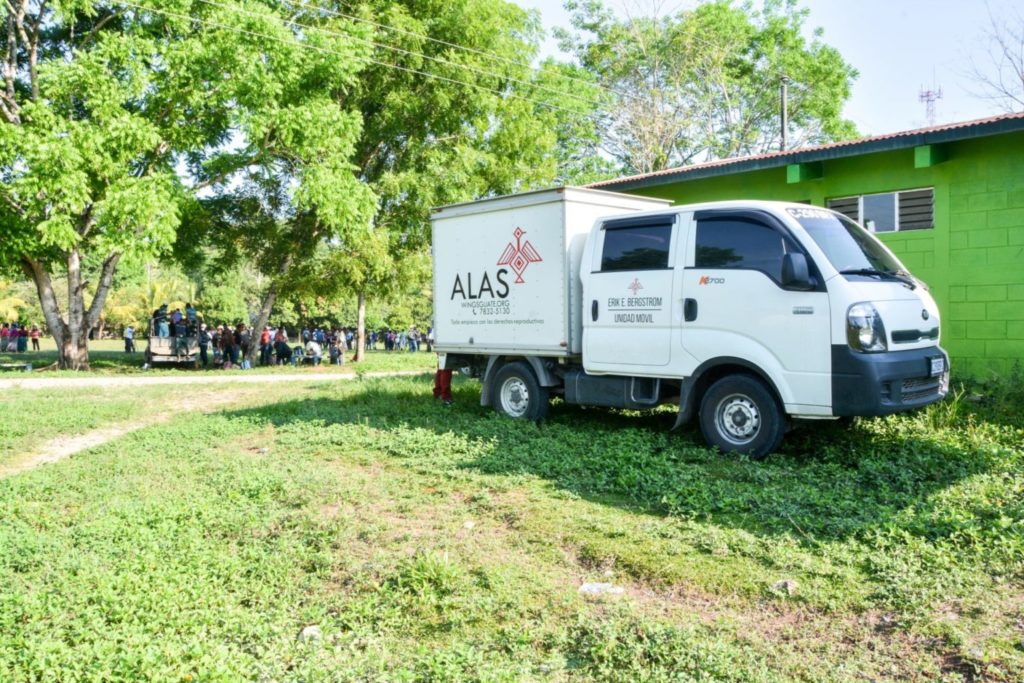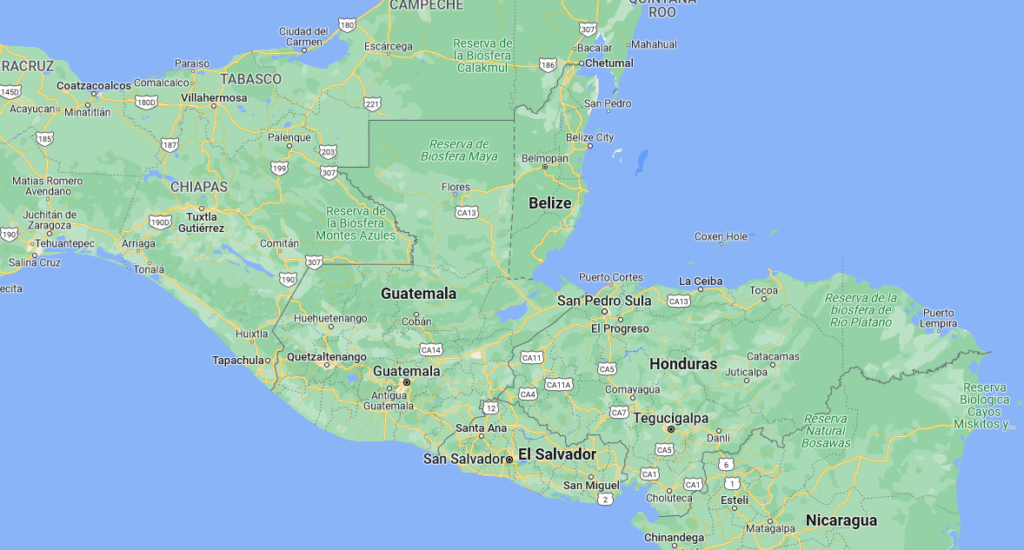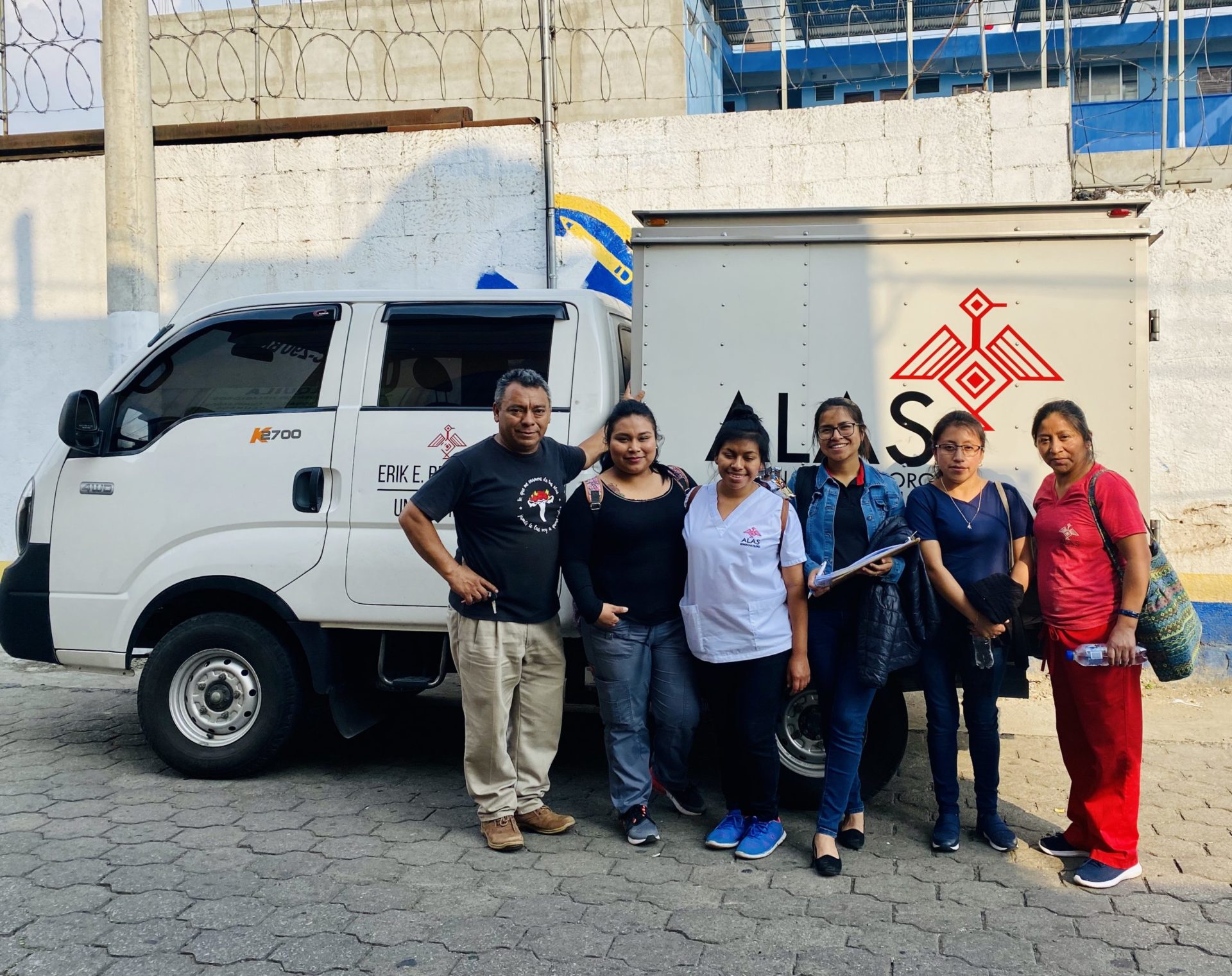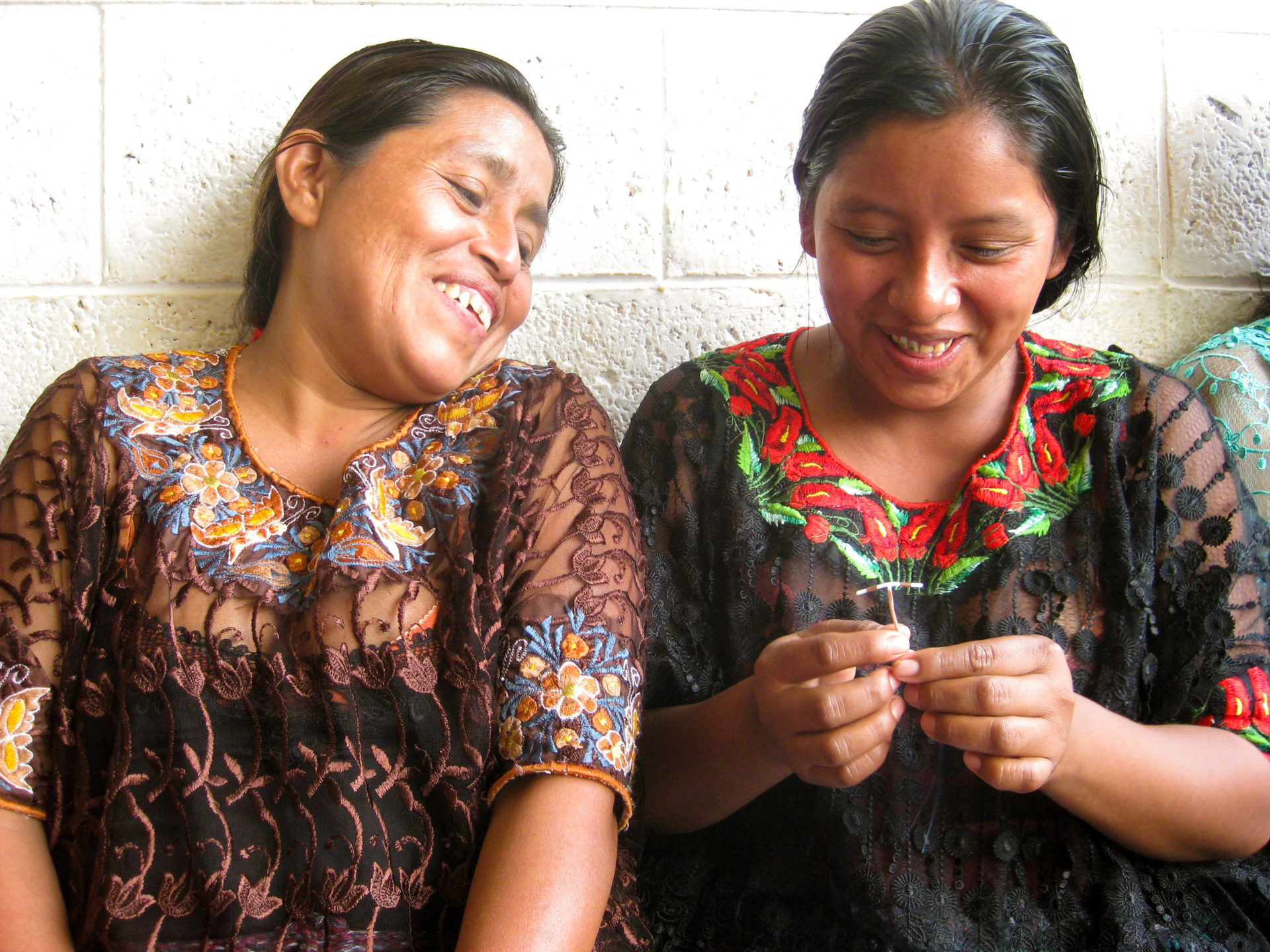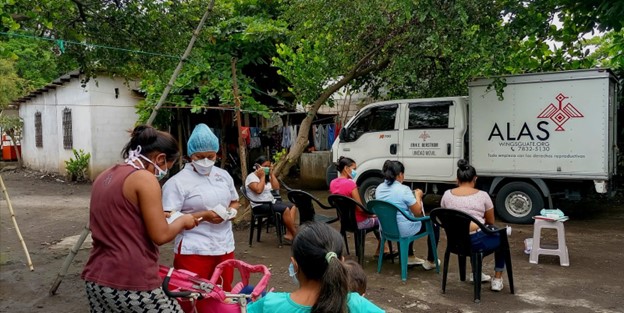WINGS Mobile Unit Team preparing to depart from Antigua office
A regular week for the WINGS mobile teams starts on Monday, prepping and packing the vehicle with all the clinical supplies that will be needed for the scheduled clinic days that week. On Tuesday morning, the team of nurses, along with the driver, go to their first day-long pop-up clinic. Once they arrive at their destination, sometimes after hours of navigating challenging roads, they provide education and LARCs to 10-20 women. They repeat this process, traveling to the next community each evening until returning to Antigua headquarters on Friday. The whole process begins again the next week!
Photo Credit: WINGS Guatemala

